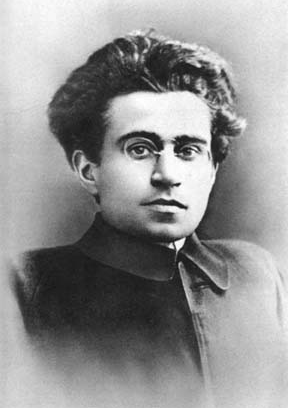
“The challenge of modernity is to live without illusions and without becoming disillusioned.”
Share this quote:
“My practicality consists in this, in the knowledge that if you beat your head against the wall it is your head which breaks and not the wall... that is my strength, my only strength.”
Share this quote:
“In the life of children there are two very clear-cut phases, before and after puberty. Before puberty the childs personality has not yet formed and it is easier to guide its life and make it acquire specific habits of order, discipline, and work: after puberty the personality develops impetuously and all extraneous intervention becomes odious, tyrannical, insufferable. Now it so happens that parents feel the responsibility towards their children precisely during this second period, when it is too late: then of course the stick and violence enter the scene and yield very few results indeed. Why not instead take an interest in the child during the first period?”
Share this quote:
“Pessimism of the spirit; optimism of the will.”
Share this quote:
“I turn and turn in my cell like a fly that doesnt know where to die.”
Share this quote:
“I would like you to understand completely, also emotionally, that Im a political detainee and will be a political prisoner, that I have nothing now or in the future to be ashamed of in this situation. That, at bottom, I myself have in a certain sense asked for this detention and this sentence, because Ive always refused to change my opinion, for which I would be willing to give my life and not just remain in prison. That therefore I can only be tranquil and content with myself.”
Share this quote:
“[E]very action of ours is passed on to others according to its value, of good or evil, it passes from father to son, from one generation to the next, in a perpetual movement.”
Share this quote:
“To tell the truth is revolutionary.”
Share this quote:
The point of modernity is to live a life without illusions while not becoming disillusioned
Share this quote:
Is it better to work out consciously and critically ones own conception of the world and thus, in connection with the labours of ones own brain, choose ones sphere of activity, take an active part in the creation of the history of the world, be ones own guide, refusing to accept passively and supinely from outside the moulding of one own personality?
Share this quote:
Im a pessimist because of intelligence, but an optimist because of will.
Share this quote:
I live, I am partisan. This is why I hate those who do not take sides; I hate those who are indifferent
Share this quote:
The principle must always rule that ideas are not born of other ideas, philosophies of other philosophies; they are a continually renewed expression of real historical development. The unity of history (what the idealists call unity of the spirit) is not a presupposition, but a continuously developing process.
Share this quote:
The whole of language is a continuous process of metaphor, and the history of semantics is an aspect of the history of culture; language is at the same time a living thing and a museum of fossils of life and civilisations.
Share this quote:
Ideas and opinions are not spontaneously born in each individual brain: they have had a centre of formation, or irradiation, of dissemination, of persuasion-a group of men, or a single individual even, which has developed them and presented them in the political form of current reality.
Share this quote:
At the limit it could be said that every speaking being has a personal language of his own, that is his own particular way of thinking and feeling. Culture, at its various levels, unifies in a series of strata, to the extent that they come into contact with each other, a greater or lesser number of individuals who understand each others mode of expression to varying degrees, etc.
Share this quote:
Common sense is a chaotic aggregate of disparate conceptions, and one can find there anything that one like.
Share this quote:
The brain is not nourished on beans and truffles but rather the food manages to reconstitute the molecules of the brain once it has been turned into homogeneous and assimilable substances, which potentially have the same nature, as the molecules of the brain
Share this quote:
Common sense is not a single unique conception, identical in time and space. It is the folklore of philosophy, and, like folklore, it takes countless different forms. Its most fundamental character is that it is a conception which, even in the brain of one individual, is fragmentary, incoherent and inconsequential.
Share this quote:
The crisis creates situations which are dangerous in the short run, since the various strata of the population are not all capable of orienting themselves equally swiftly, or of reorganizing with the same rhythm. The traditional ruling class, which has numerous trained cadres, changes men and programmes and, with greater speed than is achieved by the subordinate classes, reabsorbs the control that was slipping from its grasp. Perhaps it may make sacrifices, and expose itself to an uncertain future by demagogic promises; but it retains power, reinforces it for the time being, and uses it to crush its adversary and disperse his leading cadres, who cannot be be very numerous or highly trained.
Share this quote: